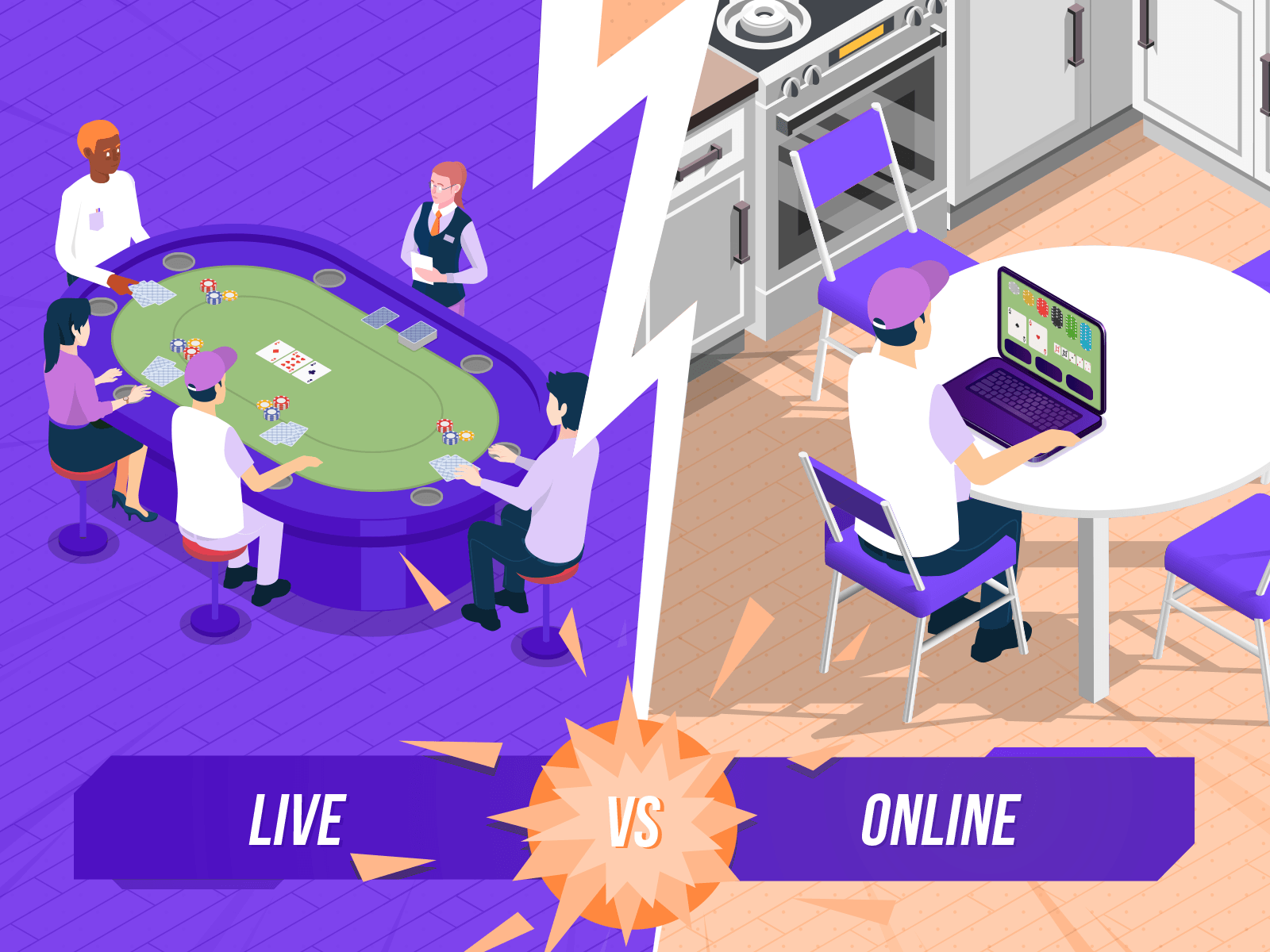 It's no secret that gambling remotely and in a physical gambling venue are very different. Being in a real casino makes people feel completely different than playing at a computer. But what exactly are the differences, and what is important to know about playing poker remotely and in a real casino or poker room environment?
It's no secret that gambling remotely and in a physical gambling venue are very different. Being in a real casino makes people feel completely different than playing at a computer. But what exactly are the differences, and what is important to know about playing poker remotely and in a real casino or poker room environment?
Other Players
The most noticeable difference is often the players you play with and against. In an online poker room, you can encounter players from other countries or even continents, while in a real casino or poker room, they will be your fellow townspeople or compatriots.
Because of this, playing in a real environment makes it easier to read your opponents' actions and behavior. Not only are you familiar with local cultural nuances, but you also understand the language and can see more with your own eyes. When players only see each other's avatars and icons on the screen, it's impossible to see body language, so you can only rely on computer calculations or your own intuition.
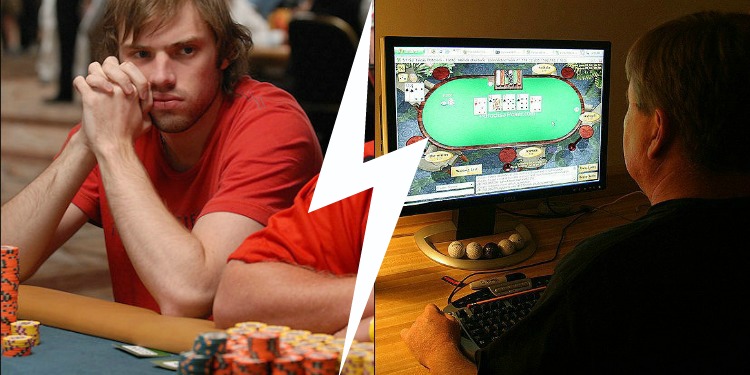 Also, playing in a real environment makes it convenient to communicate with other players and use communication as a tool to gain an advantage or find new like-minded friends. Although online communities are huge (for example, hundreds of thousands of users play on Pokerstars), the feeling is still not the same. For example, in several studies by scientists examining the difference between written and real communication on the human body, it was found that real conversation releases hormones that strengthen trust in people and reduce stress. During written communication, if any oxytocin (the love and attachment hormone) is released, it is very little, making it harder to form connections and communicate in a virtual poker room. There, you will feel more lonely.
Also, playing in a real environment makes it convenient to communicate with other players and use communication as a tool to gain an advantage or find new like-minded friends. Although online communities are huge (for example, hundreds of thousands of users play on Pokerstars), the feeling is still not the same. For example, in several studies by scientists examining the difference between written and real communication on the human body, it was found that real conversation releases hormones that strengthen trust in people and reduce stress. During written communication, if any oxytocin (the love and attachment hormone) is released, it is very little, making it harder to form connections and communicate in a virtual poker room. There, you will feel more lonely.
Advantage – Better Success Playing Remotely
If we compare the achievements of various people at the poker table and playing remotely, most of the best results are achieved not by playing in person but by being at the computer. Why is that? The reason is often considered to be the home or other comfortable environment where the player can relax and not think about anything else. Being surrounded by other people and constantly communicating makes it difficult to maintain good concentration on the game, leading to incorrect calculations, unweighed risks, and overestimated bluffs.
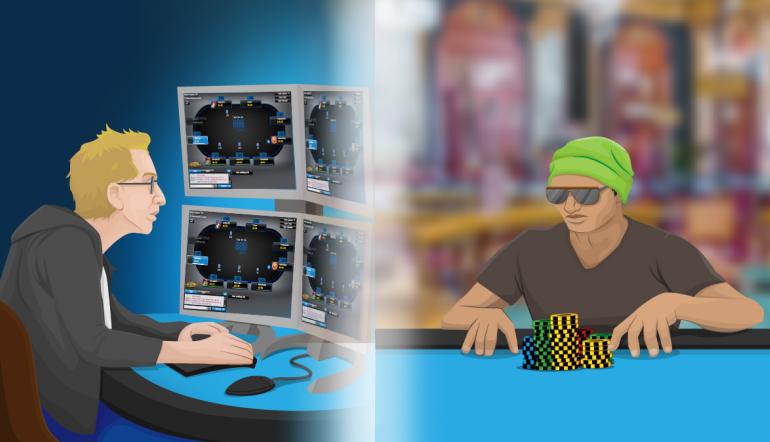
Players can choose the most convenient time of day for gambling, so they sit at the computer rested and ready to play. A poker tournament takes place at a scheduled time, so it is not always possible to show up in the best shape or mood.
Some like to play lying in bed, others use their lunch break at work. However, to play in a real poker room or casino, you will need to spend a lot of time just getting there, not to mention exchanging chips, possibly waiting in line for a seat to become available. So, while poker in real conditions probably provides more human joy, playing virtually allows you to use various auxiliary tools and enjoy the results.
Time Perception Disappears in Both Cases
Time Perception in Casino Houses
You probably know that you will never find clocks in a casino. Also, there are few windows, and there is always the same artificial lighting. Because of this, it is very easy to lose track of time when entering a casino, especially when participating in gambling games, and we may not notice how 1, 2, 3, or more hours pass.
Psychologists and scientists sometimes even nickname this phenomenon the “casino time effect,” but the reality is that gambling is a very engaging activity. It is almost impossible to play them carelessly, which is why there are so many emotions, reactions, and joy and sadness at the poker table or playing other gambling games.
However, time perception also disappears when a person is engaged in something interesting, fun, or important. Time also passes quickly when participating in an event that interests you or being in a place you don't want to leave. The reason is simple – gambling activities are engaging because they strongly stimulate the most sensitive areas of the brain. Almost every gambler feels that they are about to win, so the impulses are strong, and the reactions are sensitive. A typical poker hand, when playing virtually, lasts from 1 to 6-7 minutes. Playing in reality – it lasts about 1.5-2 times longer. And do you really get tired after playing 15 hands? Probably not, but by then more than 90 minutes of your time will have passed, which seems to have evaporated.
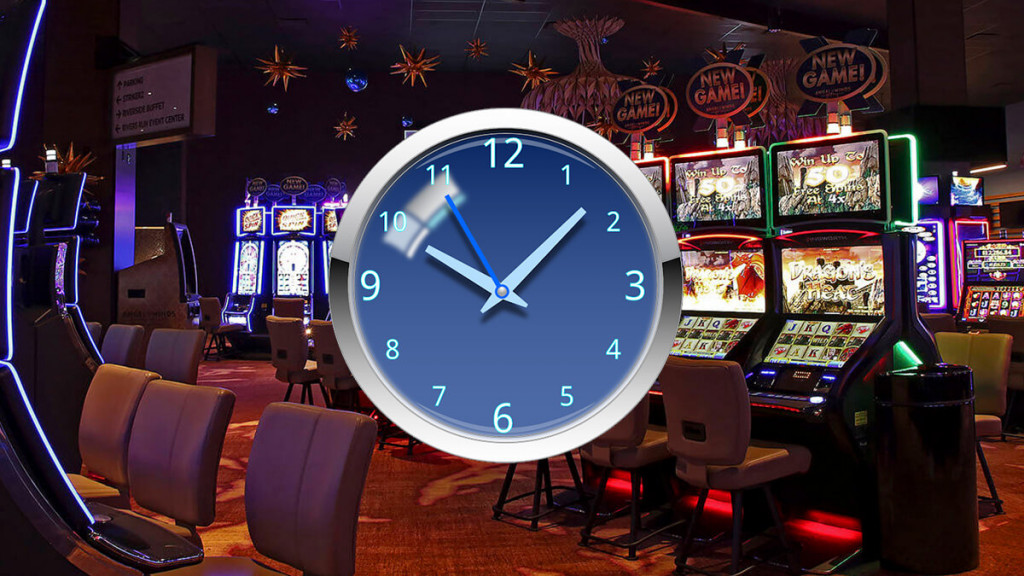
Time Perception Playing at Home
That's why there are no clocks in casinos, because gamblers would spend much less time there. And poker and other games are played in casinos, which only further engage gamblers. However, at the computer, it seems everything is simpler. After all, most screens have a clock in the bottom right corner showing the time, so it seems logical that playing virtually, time perception will not disappear, right?
However, in a study by the ELSPA association in the United Kingdom, it was found that 99% of people playing on computers (this can also be poker) lose track of time. A third of them lose it constantly, and the rest – rarely or often. So, if you don't want your poker session to last indefinitely, set an alarm to remind you that it's time to take a break.
One Type of Player Has a Clear Advantage
According to psychologists and poker researchers, players who perform well in live games almost always show excellent results when playing poker online. However, those players who are very good at online games have relatively low chances of playing well in live games. Experts say there are several reasons for this:
- Playing remotely, people feel more comfortable, but sitting around other people, they start to feel stressed and distracted
- Playing remotely, players can use poker programs that increase the chance of winning and reduce the risk of making mistakes
- Playing remotely, they can take more risks because other players simply don't have time to understand their playing style
Therefore, it is interesting to know that a person who plays live poker is likely to be a good online poker player, but an online poker guru may not necessarily show the same skills at a real table.
Players in Online Games Are More Prone to Taking Risks
Another interesting phenomenon – spending 50 euros in cash will be more painful than spending 50 euros from a bank card.
This is a major reason why banks and other institutions encourage people to use bank cards and gradually move away from cash. It is not only more convenient and simpler, but it also promotes consumption. A similar psychological phenomenon is observed in poker. When playing virtually, a player may feel more confident to bet a larger amount or take a risk with an adventurous bet because virtual numbers do not fully associate with money for them. If they saw a pile of real cash, everything might be different, and there wouldn't be as much risk. This is precisely why players with chips in real games tolerate less risk.
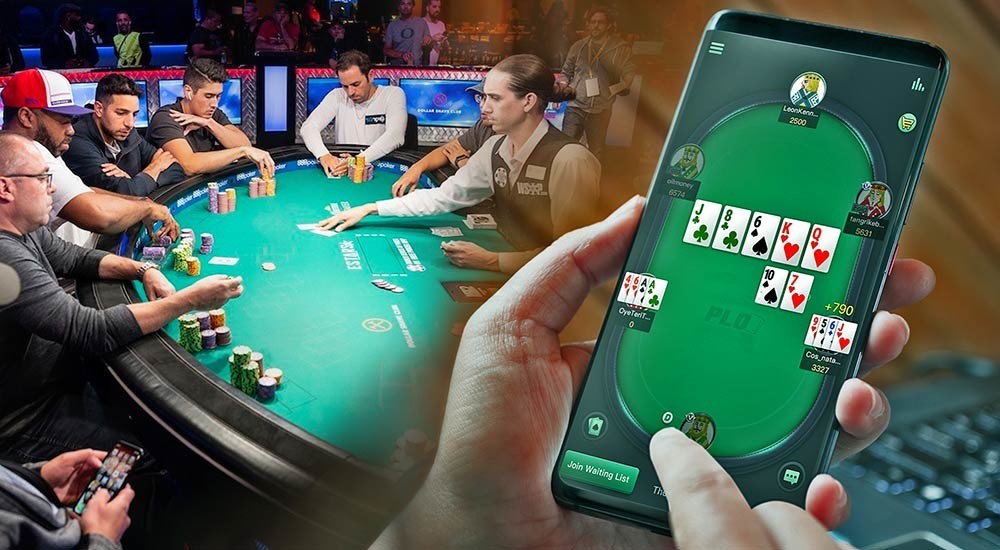
If you're curious, the perception of money value differs by up to 50%, and sometimes even more. Therefore, losing €10 in a real game feels the same as losing €15 online and vice versa.
People playing virtually try to win as early as possible
The difference between poker enthusiasts and veterans or wolves is patience. Inexperienced or new players have little of it, so they try to scare off all opponents even in the preflop stage. It's not uncommon to see a situation online where a player doubles or even triples the BB (Big Blind) bet at the very beginning of the hand. However, in poker tournaments or where professionals play live, such things are exceptionally rare.
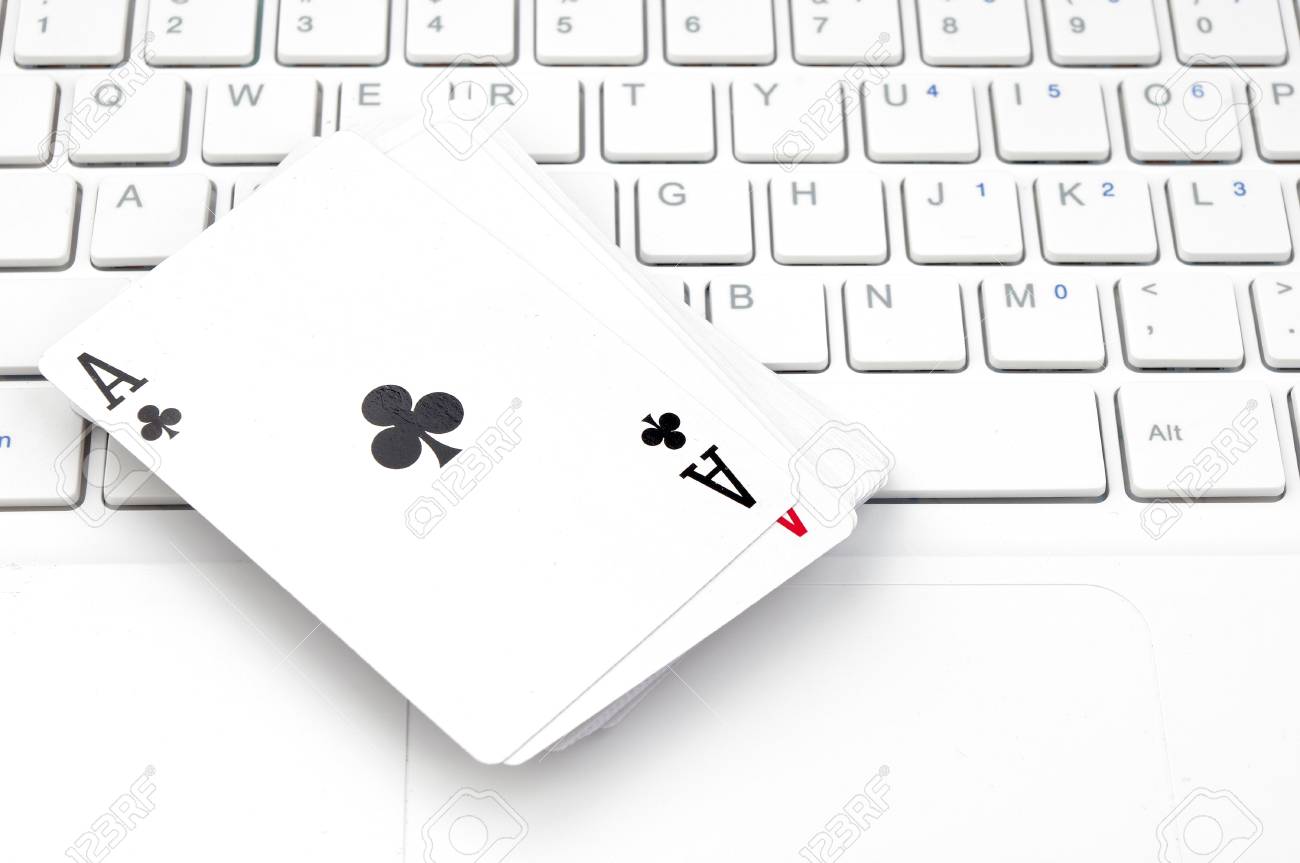
However, paradoxically, in live games, we more often hear calls and matched bets. But the consequence of this is that right after the preflop, we have a heads-up situation where players can no longer influence anything, and everything is determined by blind luck. The main difference between online and live game players is their behavior in preflop and postflop situations. Live game participants are much more patient and do not make hasty decisions with moderately strong or fairly weak cards. Meanwhile, online gamblers do not shy away from taking risks and going all the way, even if they have a combination with a fairly low chance of winning. Although each game session can be different, the trends are similar, and stereotypes do not arise from nothing. This behavior can also be linked to our previously mentioned devaluation of money. When playing online, players do not take losses as hard, so they tolerate greater risk.
Summing it all up, we can say that when playing online, whether you want it or not, you will probably feel a greater desire to take risks and raise bets when the risk is very high.
More failures, but easier to accept them
And the last nuance we would like to highlight when talking about the emotional and psychological differences between playing in a real environment and live is that online poker players more often notice “black” or unlucky streaks.
Although card dealing algorithms are completely random and in both cases the cards are well shuffled (literally or figuratively), experiences show that when playing lower limit games, poker players do not feel that fortune is smiling upon them.
This also contributes to the fact that players feel fatigue and despair, which leads them to take adventurous and risky bets. And since the bets are small, even with a fairly good starting hand, you cannot be sure that players with poor cards will fold. They simply do not mind taking risks, and because of this, later on, they get lucky and reveal cards that cause a loss at the last moments.
Additionally, the pace of the game contributes to this. As we mentioned, everything happens slower in real games. There is also the possibility to play in a multi-table format, where several games are played simultaneously.
In conclusion, we would add that when playing in real life and losing 33% of their initial money, a very large portion of players would consider quitting and would not want to continue playing (at least for a while). However, people playing virtual poker, after losing such an amount of money, usually do not stop playing but simply move to another table. Thus, they accept failures more easily and continue to believe that they will win soon.





